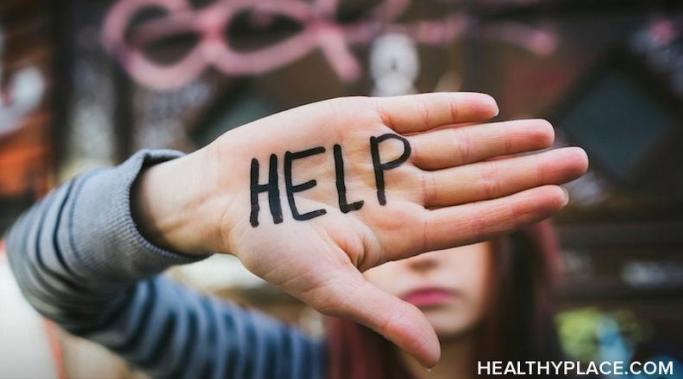When I think of mental illness--my journey sprinting through life alongside it-- I think of the image below. The famous Two Masks. I painted a picture of it, framed it, and gave it to my mother a couple of years ago. The irony was not lost on her. It hangs in the hallway; laughing at me. The masks represent bipolar disorder to me. They represent emotion on a whole--the entire spectrum. Like many people living with chronic mental illness, it's hard to find the parts that define the middle; the sort of happy bits that made us smile but were fleeting.
Managing Bipolar Disorder
I think I talk about stress and the impact it can have on our mental health often in this blog. Hopefully, it's not exceedingly boring. This blog is a bit different in topic. Yes, it focuses of taking care of ourselves during periods of stress, but also on how we can take care of those we love if they become ill---while knowing when to pull back.
Oh...This is hard. I don't think I have ever slept this much in a very long time. I can sleep 20 hours a day. I can drag my ass out of bed to complete important articles, walk the dog and feed the cats and...fall back into bed. And by accident! I just cannot stay awake. My bed and I have become best friends. The books on my night-table keep me company and I try to eat. My life, pretty good just a month ago, has bloody well crumbled and I cannot even find the pieces to put it back together.
I remember being a little girl--my hair was curly and my mother put pink ribbons in it. Apparently, I was pretty cute, but I'm certain it's a mothers blessing to honestly believe they have the best looking little ones. That aside, I remember a life in which I was not afraid of the future. I was excited! I had lots and lots of plans, some of them secret and some of them I told everyone I could.
When I grew up I wanted to be a doctor and an actress and as pretty as the babysitter who occasionally took care of my siblings and I. I was not afraid of the future; I was still young and pure as only children are. I had not yet been diagnosed with a chronic mental illness.
This July, I published a book, The Third Sunrise: A Memoir of Madness. It was a long three-year process sprinkled with bouts of depression and anxiety, but happiness as well. I had always wanted to write a book about my experience with mental illness and addiction. The reality of it--exposing my life on paper--was much harder than I had originally thought. I suppose I was a little naïve?
When you were first diagnosed with a mental illness, you were probably pretty confused. Life became sort of foreign. Sometimes, the past felt like a preferable place to be, even if we were sick. After all, we didn't always know we were ill. But after we come to a place of acceptance, we learn a few things and one of them is understanding signs of a mental health relapse.
The title of this blog probably does not come as a surprise: When your mind shuts down your body reacts as well. It is not a positive reaction. It is directly connected to our brain chemistry. The neurons that are not acting as they should--a chemical imbalance. Simple, Right?
When you are diagnosed with a mental illness one of the first things you are told is that you need mediation in order to become well. And this is true--particularly with the diagnosis of chronic mental illness-- but medication does not ensure stability. It would certainly be nice if it did.
Coming to the Conclusion That Psychiatric Medication Cannot 'Cure' Mental Illness
Earlier this week, I write a post Mental Illness Recovery: Will I Stay Well? Following the post, I started thinking. I asked myself that very question: Will I stay well? The answer? No, not forever. Forever would be nice. I then wondered how I could become comfortable with this.
Is that possible?
I am twenty-seven years old as I write these words. I own my own home and I have a dog I adore. I cook and I clean and I talk to my family on a regular basis.









